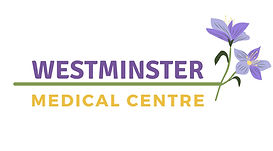Let's talk about Kidney Stones
- Westminster Medical Jamaica
- Nov 15, 2022
- 2 min read
Updated: Nov 18, 2022
What are Kidney Stones?
Kidney stones are hard rock-like deposits made from minerals and salts found in the urine. They can be as small as a grain of sand or even as large as a golf ball. Most kidney stones, however, are as small as a chickpea.

What are they made of?
Most kidney stones are made of calcium and oxalate, a natural chemical in most foods. These oxalates can bind with calcium as they exit the body. When there is a high concentration of these deposits in the urine, but not enough liquid, the deposits can combine to form crystal-like stones.
Uric stones are made up of uric acid or urates. These form when purine compounds are broken down by the body. Purine is found in certain foods, like mackerel and liver.
Struvite stones typically form due to urinary tract infections. Certain bacteria produce ammonia (a component of struvite), which makes the urine more alkaline, forming struvite stones.
What are the symptoms?
Pain is the most common symptom of kidney stones. This pain is typically sudden and sharp and felt in your abdomen, side or lower back. Other symptoms include trouble urinating or pain while urinating, discoloured urine, fever, nausea and vomiting.
Why are they painful?
After forming in the kidneys, these deposits enter the ureter (i.e. the tube that connects the kidney to the bladder).

This tube is small and inflexible, making it difficult for stones to pass through to the bladder with ease. You may also experience painful spasms as the ureter contracts around the stone in an attempt to push it out. However, larger stones may get stuck in the ureter, causing a blockage. This blockage can cause a backup of urine in the kidney, and swelling.
How can I Avoid Kidney Stones?

Firstly, be sure to drink enough fluids, especially water. This can help to dilute your urine, making it harder for stones to form.

Secondly, be mindful of how much you consume certain foods, including nuts, meat, chocolate and salt. These foods contain compounds that, when in high concentration, combine to form stones.
Worried you have a kidney stone? Call us at (876) 926-6067 to make an appointment with our Consultant Urologist, Dr Elon Thompson.

.jpeg)
Comments